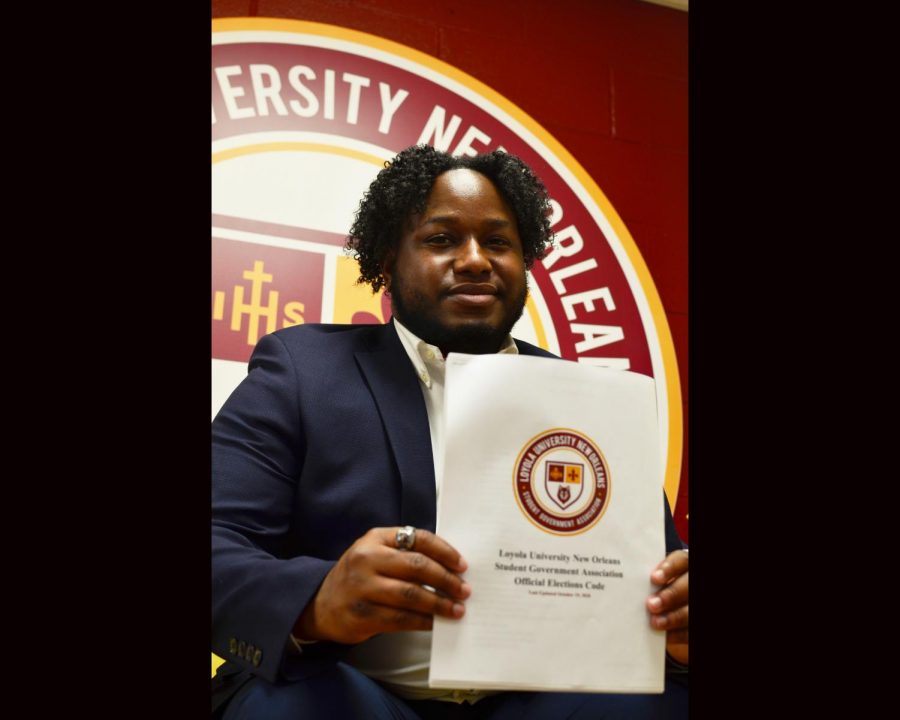Student Government Association revises elections code, appoints election commissioner
Chief Justice of SGA Tyler Sanchez looks over the updated Official Election Code. This year, members of SGA worked diligently to ensure the updated version of the election code was more accessible to all students. Photo credit: Gabrielle Korein
February 5, 2021
Loyola’s Student Government Association is making inclusive changes to its administration by appointing the first commissioner of elections and updating its elections code.
Femi Adegoke, political science freshman, has been appointed as the first commissioner of elections at Loyola.
As commissioner, Adegoke will oversee the elections commission, which is the committee that is designed to review candidate applications, make sure the election process is fair and equitable and host candidate meet-and-greets.
“We want this election to be easy and accessible for all students because that is the only way it will be fair,” Adegoke said.
Before the updated elections code, candidates did not have guidelines on what constitutes appropriate or inappropriate behavior on the campaign trail, according to SGA Chief Justice, Tyler Sanchez. The changes made to the elections code give the student body more power to hold candidates accountable.
Sanchez said he discovered problems and loopholes within SGA’s elections code while campaigning for Student Government Association President during the 2019-2020 school year, inspiring him to change the code.
“I have spent a lot of time trying to ensure the integrity of the elections process as well as the transparency of it through the updated elections code,” Sanchez said.
The updated elections code specifies what forms of campaigning can be used.
“Permissible forms of campaigning shall be divided into three distinct groups: verbal campaigning, electronic campaigning, and material campaigning,” according to Article VI, Section III, Clause I of the elections code.
The updated election code specifies that campaigning consists of “spoken communication,” which includes calls, video calls, and in person communication. The election codes clarify that electronic campaigning is the use of technology to promote one’s campaign while material campaigning is the use of physical or material objects to benefit one’s campaign. However, the elections commission has the power to set additional boundaries for each area of campaigning during campaign season that they see fit.
Sanchez didn’t want other students to face the same issues he did while campaigning last year.
Before reforming the elections code, there were restrictions on how candidates could utilize outside resources, Sanchez said. Now, candidates can accept donations from friends and family as official campaign contributions.
“Campaign expenditures shall include personal funds, endorsement funds, and direct donation,” according to Article V, Section II, Clause I of the elections code.
Any items that candidates purchase to enhance their campaign – posters, t-shirts, or other trinkets – will now count toward their campaign spending limit.
“Any item directly used for campaigning must be included as and considered expenditures and assessed at a fair market value,” according to Article V, Section I, Clause IV of the elections code.
Sanchez said he also lengthened the voting period to encourage more student involvement with the election process. Candidates can now campaign for 15 days, and the voting period will last for 24 hours, according to Article VIII, Section II, Clause II of the elections code.
The ultimate goal of the updated elections code is to empower student voices on campus, according to Sanchez.
“If you want people to be involved in student government, you have to ensure that they have full faith in the elections process,” Sanchez said.







